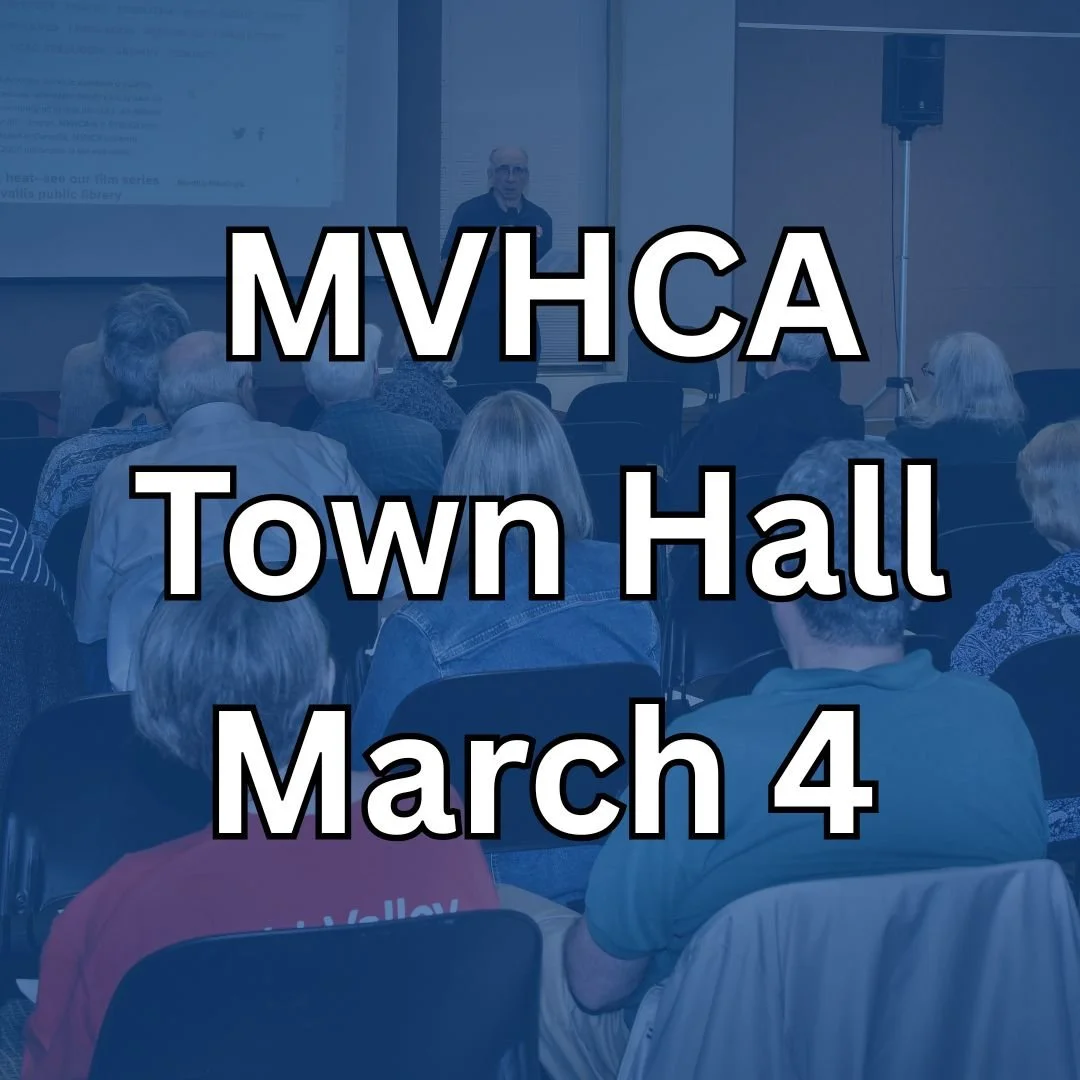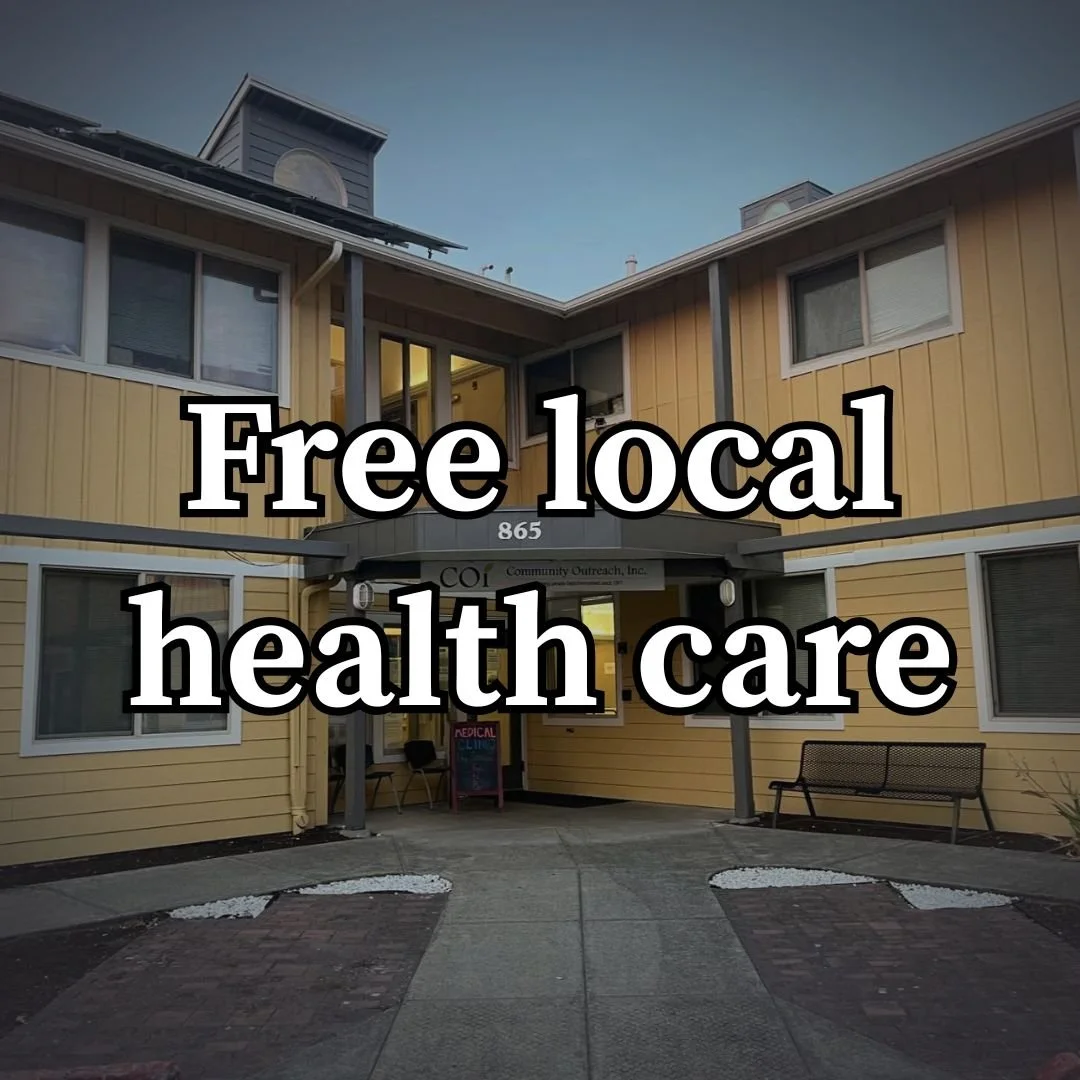Our history fighting for Oregon single payer
Get organized
A man stood up at a health care forum and said, ”We need to get organized.”
And so it began at St. Mary’s Church, in Corvallis, Oregon in 1991. Rich Lague and Betty Johnson agreed to be co-chairs; Rich proposed the name Mid-Valley Health Care Advocates (MVHCA) and suggested the logo with a family under a large umbrella, symbolizing health care for ALL.
Affordable health care for ALL was the goal from the very start and has remained our goal to this day
The fledgling group began with a series of educational forums aimed at informing the community about the need for health care reform. Local organizations and church groups often co-sponsored these events.
In 1995, MVHCA partnered with Oregon Health Action Campaign and other advocates to testify at a legislative hearing in favor of SB1066, a single payer bill. In 2000 MVHCA helped create Health Care for All Oregon, a statewide organization, dedicated to universal, single payer health care.
MVHCA was a major partner and leader in the Ballot Measure 23 campaign culminating in the election in 2002. Although this measure was not approved by voters, the enthusiasm generated in that effort persisted with informative public meetings and continuing contact with state legislators.
When the Oregon Health Fund Board was created in 2007, two MVHCA members were appointed to its committees and later were instrumental in helping the legislature create the Oregon Health Policy Board in 2009. Again, MVHCA members serve on OHPB committees, continue to attend monthly OHPB meetings, and occasionally give testimony.
In 2011 and 2012, MVHCA members played a vital role in organizing a new Health Care for All Oregon (HCAO) whose mission is to work for an affordable, comprehensive, publicly funded, high quality, universal health care system serving everyone in Oregon and the United States. MVHCA is one of the founding members of the new HCAO and Mid-Valley advocates regularly serve on the HCAO Board of Directors. MVHCA remains one of the most active and influential groups in the entire state.
Oregon single payer
In addition to the above landmark activities and events, Mid-Valley Health Care Advocates has:
*Established and supported Interfaith Health Care Network, composed of nine local congregations.
*Assisted local physicians to form a Corvallis chapter of Physicians for National Health Program (PNHP).
*Supported advocates who have established an active Health Care for ALL Oregon group in Albany, a nearby town.
Mid-Valley Health Care Advocates continues to:
*Maintain working relationships with numerous health care advocacy groups around the state.
*Organize public forums, including town hall meetings, film showings and educational workshops on a wide variety of timely health care issues, including political candidate forums. Many of these public events have been co-sponsored and planned in cooperation with PNHP, Interfaith Health Care Network, League of Women Voters, County health departments and other organizations.
*Promote public testimony periodically at meetings of Oregon Health Fund Board, Oregon Health Policy Board and Legislative hearings.
*Advocate for quality of care, transparency, and accountability of Coordinated Care Organizations, which serve those on the Oregon Health Plan (Oregon’s Medicaid program).
MVHCA’s most recent achievement, in coalition with other organizations, was to pass Oregon Senate Bill 770 in 2019. This legislation required the Oregon Legislature to fund a Task Force on Universal Health Care. This 20-member panel is charged with research and design of a plan to create a publicly funded universal health care system that is affordable, equitable, comprehensive, and provides high quality health care to everybody residing in Oregon. The SB 770 Task Force currently meets monthly, and is slated to report back to the Oregon legislature by September 2022. MVHCA actively monitors progress of the Task Force and its technical advisory groups, in addition to promoting community participation by alerting as many people as we can about opportunities for public testimony.







Join our public meeting on the fourth Monday of the month at the Corvallis Unitarian Universalist Fellowship: 2945 NW Circle, Corvallis. Or, join us virtually on ZOOM → HERE. Attend and learn about our work to bring efficient and fair health care to all Oregonians. This meeting is open to the public, so feel free to bring along anyone you like! EVERYBODY IN – NOBODY OUT